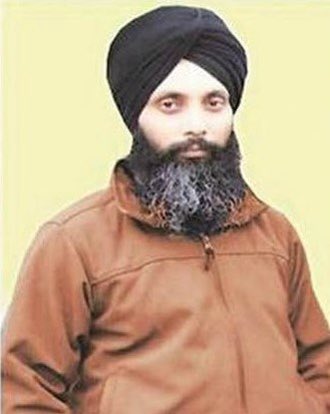Hardeep Singh Nijjar, a Pro-Khalistan leader declared a ‘wanted terrorist’ by the Indian government, was shot dead in the Punjabi-dominated city of Surrey in the British Columbia province of Canada on Sunday.
Nijjar was shot dead at the Guru Nanak Sikh Gurdwara, a prominent Sikh temple in the area.
Advertisement
As the internet becomes inundated with updates on this incident, it is important to gain a deeper understanding of who Hardeep Singh Nijjar was and his background.
Known as a pro-Khalistan leader, and originally from Bhar Singh Pura in Jalandhar, Punjab, a plumber by profession, Nijjar played a pivotal role in organizing the controversial Khalistan referendum in Brampton, a city in Canada. This referendum aimed to determine whether Sikhs residing in various countries around the world support the establishment of an independent Sikh homeland. However, Nijjar’s involvement in this cause raised eyebrows in India, where he faced allegations of being linked to terrorist activities. The Indian government went as far as urging Canadian authorities to take action against Nijjar due to his alleged role in acts of terrorism within Punjab.
During the Brampton event, which Nijjar led, it was claimed that over one lakh (100,000) people participated in the separatist activity, further raising concerns for Indian authorities. The Indian government lodged a formal protest with the Canadian government, expressing its dissatisfaction with the allowance of such anti-India activities on Canadian soil.
In a recent interview with a Vancouver-based channel, Nijjar vehemently denied the allegations of his involvement in terrorist activities. He argued that he had been residing in Canada for more than three decades and served as a devoted volunteer, or “sewadar,” at a gurdwara in Vancouver. Nijjar felt that he had been wrongly targeted and dismissed the accusations against him.
It is worth noting that Nijjar held the position of president at the Guru Nanak Sikh Gurdwara in Surrey, a role he was re-elected to in 2020. This position granted him significant influence within the Sikh community in the region.
Nijjar was closely associated with Sikhs for Justice (SFJ), a separatist organization founded in 2009 and primarily led by lawyer Gurpatwant Singh Pannun. The SFJ gained notoriety for its advocacy of an independent Sikh state, Khalistan, and its activities prompted the Indian government to ban the organization in 2019 under the Unlawful Activities (Prevention) Act (UAPA), citing its anti-India stance.
Adding to the mounting controversies surrounding Nijjar, the National Investigation Agency (NIA) filed a chargesheet in September of this year against four individuals, including Nijjar, for their alleged involvement in the murder of a Hindu priest in Jalandhar the previous year. Prior to this, the NIA had announced a cash reward of ₹10 lakh for any information leading to Nijjar’s arrest, indicating the seriousness of the accusations against him.











